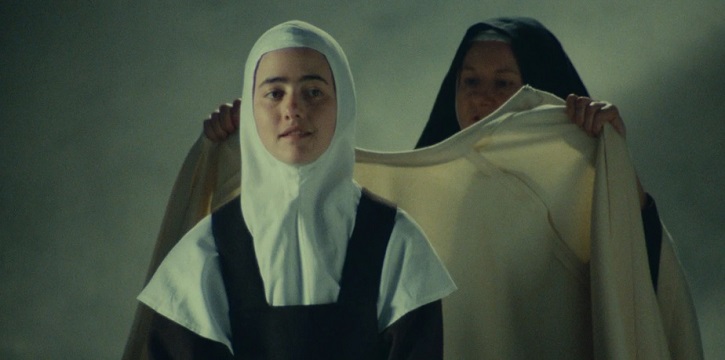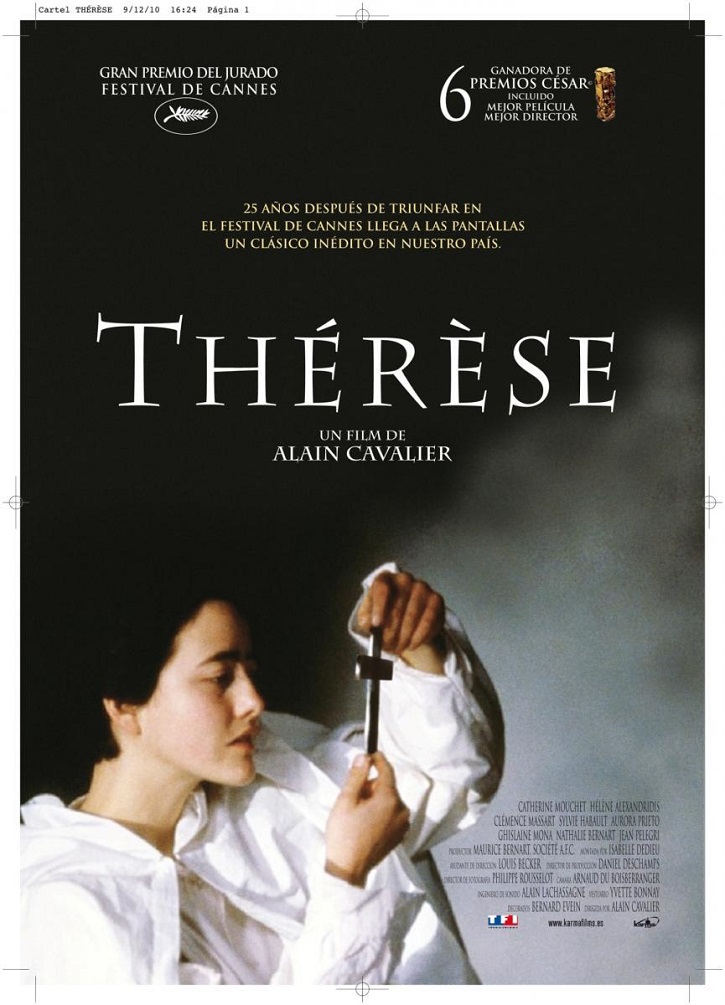My dear popcorn lovers! We remember ‘Thérèse’, the only hagiography that reached Spanish cinemas.
Thanks to karmato Movies, eleven years ago Thérèse came to the national cinemas. only feature films The Story of Saint Thérèse of Lisieux (Leonardo Defilippis2004) and tangentially The legend of the holy drinker (Ermanno Olmi1988) directly address the issue.
It is unknown why such an exciting life is not interested in promoting itself on the screens. Luckily, as for another great young saint, Gemma Galganifor the same reason, he is already remedying it Oscar Parra de Carrizosa.
In the case of Therese, the film landed in Spain 25 years after its commercial release in France. So now, 97 years after the canonization of Teresa of the Child Jesuswe put the accent on the only enjoyable and accessible film about Santa Teresita.
A boy reading marked the director
At 80 years old, the director of the film, Alain CavalierI had never worked on religious themes before. As a child he read the saint’s autobiography, story of a souland was captivated by the writing. Since then he has been looking for a way to give it a film format. But of course, a few years still had to pass before he was able to undertake the filming of Therese. He was especially struck by how a strange girl could decide to lead a life dedicated to God, in the context of a bourgeois family.
We remember ‘Thérèse’, the only hagiography that reached Spanish cinemas
The brief history of Thérèse Martin is well known. Following the example of one of her sisters, Pauline – the other four were also nuns – she entered the Carmelite convent of Lisieux at the age of 15. She first obtained the approval of her father, given that her statutory age was 17. After her, Pope Leo XIII will also give it to her in a personal audience, which she attends with her father and her sister Celina of her.
Back in Lisieux, the bishop gives his approval and On April 9, 1888 Teresa enters the Carmel of this city. In the meantime, she had to overcome the refusal of her mother superior, who objected to her young age and poor health. And indeed, the conditions of conventual life were not appropriatesuffered her physical condition and tuberculosis took her at 24 years of age, in the midst of appalling suffering that she accepted “for the love of Jesus Christ”.
The sobriety of Carmel
For its part, Cavalier is limited to showing the existence of the saint through a succession of prints, on a black background, with abrupt cuts between one sequence and another, in clear harmony with the sobriety of Carmel. The filmmaker approaches the story by eliminating everything that could be accessory, to highlight the service vocation of a simple soul. “I feel sympathy and irony for her at the same time. I think it represents the time,” Cavalier declared at its premiere.
It was said at the time that this film “has a quality from another world”, that its “simplicity is described as a great enigma in the action of divine grace in our ordinary life”, that it is extraordinary “as a work of art and as a meditation on spirituality”, or that “excites, seduces, confuses and sometimes captivates with its beauty”.
At the 1986 Cannes Film Festival, he received a twenty-minute applause., a special jury prize and the unanimous consensus of the critics. The following year she garnered six César awards (the French Goya).

In addition, Cavalier managed to renew the childlike image of the saint. Catherine Mouchetthe excellent 52-year-old actress whom she gives life to, wisely interprets her joy, her euphoria, her suffering and her spirituality as any gift allows, at the height of Falconetti of The Passion of Joan of Arc (Carl Theodor Dreyer, 1928). In this sense, Cavalier successfully shows his talent for directing actors.
Thérèse, in her filmic austerity, is devoid of music, of suspense. In fact, there are no dramatic explanations or justifications in the plot. But far from it is a bland film or close to sacristy cinema. Rather it is a lucid, and very human, story about a passion filmed with high doses of sensitivitywhich make the film an absolute reference in cinematography about the young woman from Lisieux.

Share and Enjoy!
We remember ‘Thérèse’, the only hagiography that reached Spanish cinemas

